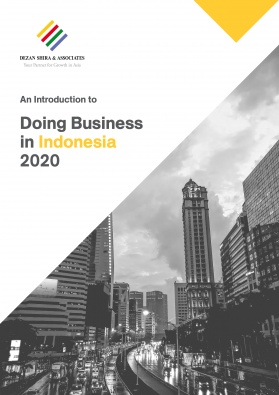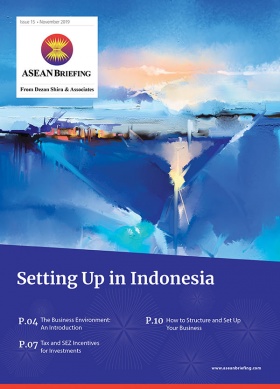Indonesia Amends Mining Law to Encourage More Downstream Investment
- Indonesia’s government made significant amendments to the country’s Mining Law as it aims to attract more downstream investment into the sector.
- As part of the amendments, the central government will now take control of the issuance of mining permits.
- The new law also introduces new business licenses for the mining of rocks and radioactive materials.
- Companies holding Contract of Work (CoW) and Coal Contract of Work (CCoW) licenses will get a guarantee extension in the form of a new business license.
In May 2020, Indonesia’s government made significant changes to the 2009 Mining Law through the issuance of Law no 3 of 2020 (Mining Law Revision), which aims to encourage more investment into the country’s downstream mining industry.
A major portion of the amendments relates to mining permits and their rights and obligations. Several new licenses have been introduced, such as rock mining certificates and assignment licenses – the latter can be used to explore radioactive materials.
Another important amendment is the government guarantee for the extension of Contract of Work (CoW) and Coal Contract of Work (CCoW) permit holders in the form of an Operation Continuation IUPK license. This will enable businesses holding these two licenses to continue their operations for effectively a further 20 years.Indonesia’s mining and petroleum industries contribute to some 60 percent of total exports. The country is responsible for significant production of a variety of commodities and minerals, such as thermal coal – for which Indonesia is the world’s largest exporter and accounts for 90 percent of Southeast Asia’s coal production.
In addition, Indonesia is a major exporter of copper, gold, and bauxite, and nickel. It is also the world’s largest exporter of palm oil and refined tin.
Central government authority
Under the 2009 Mining Law, both the central and regional governments played a key role in the country’s mining industry – to set mining policies, grant licenses, and manage conflict resolution.
A key reform in the Mining Law Revision is the removal of the authority of regional governments to issue all types of mining licenses.
This now falls solely under the authority of the central government. The amendment is part of the government’s efforts to seek improvement in the country’s ease of doing business standings by centralizing the licensing functions of major sectors of the economy.
The newly revised Law, however, does allow the central government to delegate authority to regional governments for the issuance of local community-based mining licenses.
New licensing regime
The 2009 Mining Law recognizes three mining permits. These are:
- Mining business permit (IUP);
- Community mining permit (IPR); and
- Special mining business permit (IUPK).
The amended law has incorporated new types of mining permits. These are:
- Operation Continuation IUPK;
- Rock mining license (SIPB); and
- Assignment license – used for the mining of radioactive materials.
Extension of CoW and CCoW contracts
A CoW contract is essentially a contract between the Indonesian government and the contract holder that sets out the company’s obligations and rights in regard to the mining procedures.
The CoW has a special status as the terms set out in a CoW can override applicable Indonesian laws. This means, for example, the taxation provisions under the CoW is applicable to the CoW holder, regardless if the government changes the country’s tax regulations.The legal framework for CCoWs is similar to that of CoWs but is more specific to aspects of coal mining.
Under the 2009 Mining Law, the government sought to convert CoW and CCoW contracts to IUPs, IUPKs, and IPRs.
Pursuant to the Mining Law Revision, the government has introduced the Operation Continuation IUPK license for the holders of CoW and CCoW contracts.
The government will guarantee the issuance of the Operation Continuation IUPK license to holders of expiring CoW and CCoW contracts, which just effectively extends the CoW and CCoW contracts.
Under the Operation Continuation IUPK license, CoW and CCoW holders can receive:
- 20 years extension (given in two 10-year extensions) if the CoW or CCoW contracts has never been extended; or
- 10-year extension, if the CoW or CCoW contract has been extended before.
Investors should be aware that the issuance of the Operation Continuation IUPK license is, in reality, dependent on the several factors, such as contribution to state revenue as well as the CoW or CCoW company demonstrating good performance in mining operations.
CoW and CCoW companies will need to convert their contracts to an Operation Continuation IUPK license between one to five years before the expiration of their CoW or CCoW contract.
Mining area changes
As part of the amendments to the Mining Law, metal mineral operations under the Operation Continuation IUPK license will not be limited to the maximum area of 25,000 hectares whereas coal productions under the same license will not be limited to the 15,000 hectares as stated in the previous law.
Transfer of licenses
The 2009 Mining Law restricted the transfer of IUP and IUPK licenses unless the transferee is a company that holds 51 percent of the shares of the said IUP or IUPK contract.
Under the amended law, IUP/IUPKs can now be transferred to third parties, which will require approval from the Ministry of Energy and Mineral Resources (MEMR). This is on the condition that the IUP/IUPK company has completed its exploration activities with evidence from data on the relevant reserves in addition to fulfilling the administrative, financial, and technical requirements.
Divestment obligations
Foreign mining companies were already instructed to divest 51 percent of their shares to an Indonesian party (central government, regional government, state-owned enterprises, and/or national private entity) under the 2009 Mining Law. The law stated that divestment should begin by the fifth year of production and 51 percent of shares should be divested by the 10th year.
The revised law is silent on the five to ten-year timeline, rather stating that the divestment obligation should be done in ‘stages’.
Investors should wait for the implementing regulations, which will provide the timing of the divestments.
The government took 51 percent control of PT Freeport Indonesia shares, the principal operating subsidiary of mining giant Freeport-McMoRan, in 2018 from 9.36 percent previously in a US$3.5 billion dollar deal.
Freeport-McMoRan through PT Freeport Indonesia controls the Grasberg mine in Papua province, said to be the largest gold mine and second-largest copper mine in the world.
About Us
ASEAN Briefing is produced by Dezan Shira & Associates. The firm assists foreign investors throughout Asia and maintains offices throughout ASEAN, including in Singapore, Hanoi, Ho Chi Minh City and Jakarta. Please contact us at asia@dezshira.com or visit our website at www.dezshira.com.







